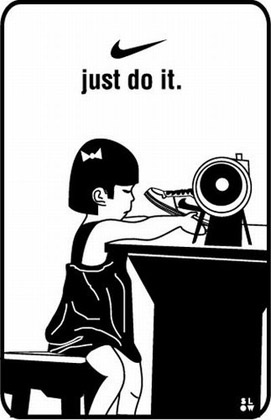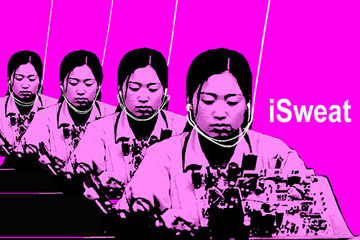
Photo: imgur
In his New York Times Op-Ed column championing sweatshops in third world countries, Kristof admits he is “just about the only person in America who favors sweatshops.”
Despite suffering the common criticisms of unhealthy conditions, abuses, low wages, etc., sweatshops, Kristof maintains, “are only a symptom of poverty, not a cause, and banning them closes off one route out of poverty.”
